We have met the enemy and they are ours
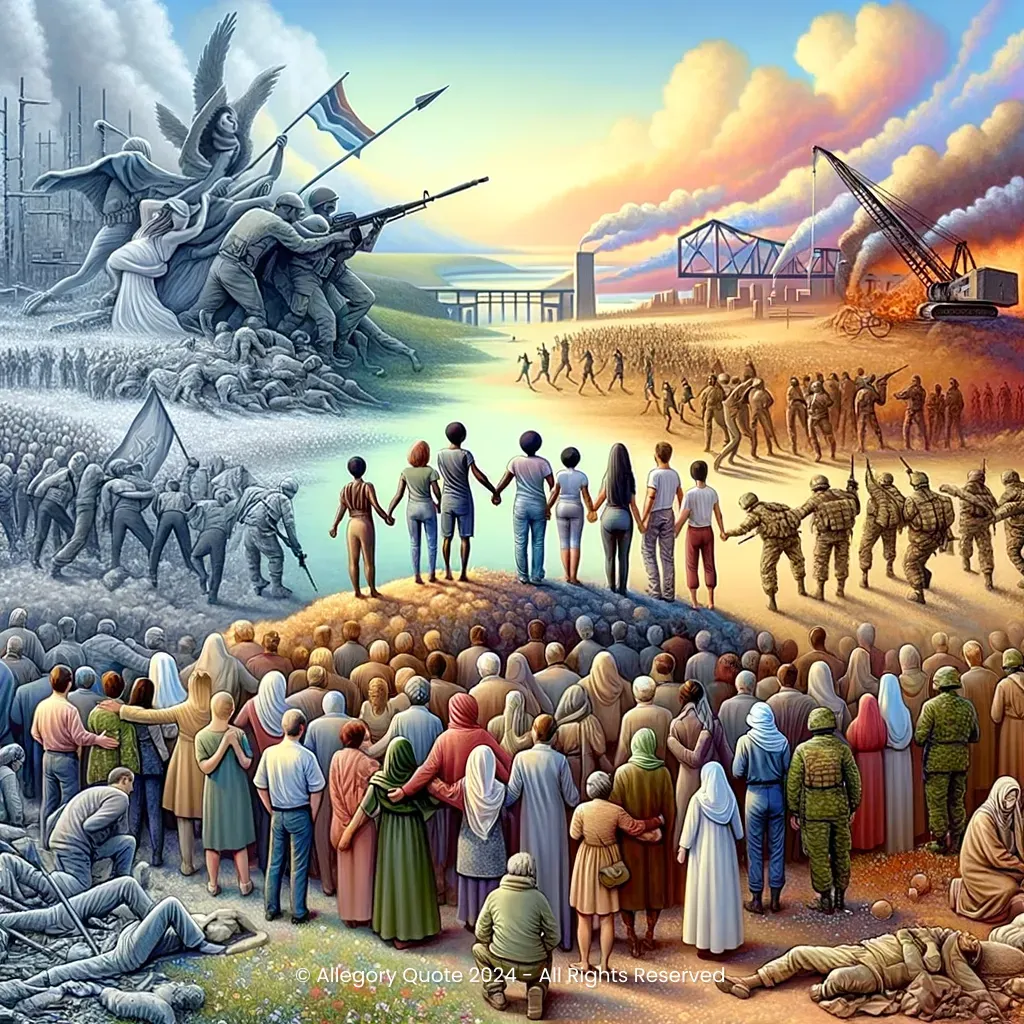
- Meaning
- This phrase captures the essence of acknowledgment and ownership of conflicts. It reflects a philosophy of understanding that enemies can also be integral to our own growth and victories. It serves as a reminder that confrontation can lead to development and that adversaries can shape our identities and strengths.
- Allegory
- The elements in the image reflect the journey from conflict to unity; individuals of various ages and backgrounds symbolize the diverse nature of adversaries, while the transforming remnants of battle into supporting structures illustrate the phrase's message about embracing challenges and deriving strength from them. The warm tones promote a feeling of serenity and hope, reinforcing the idea that through confrontation, we can find allies and growth.
- Applicability
- In everyday life, this phrase encourages individuals to confront their challenges directly and to find value in battles faced—whether these are personal conflicts, competitions, or struggles in life. By accepting challenges as opportunities, individuals can transform enemies into allies in their own development.
- Impact
- This phrase has had lasting impact in military history and literature, emphasizing resilience and identity formation through conflict. It has inspired discussions on leadership, strategy in confrontation, and the duality of relationships with adversaries, often quoted in many naval and military contexts.
- Historical Context
- The phrase was coined following the Battle of Lake Erie, on September 10, 1813. This era was marked by significant conflict between the United States and England, influencing young American nationalism and naval prowess.
- Criticisms
- There may be criticisms suggesting that the phrase romanticizes conflict or downplays the harsh realities of war. Some argue that it may oversimplify the complexities and consequences of battle and adversarial relationships.
- Variations
- Variations exist across cultures reflecting similar sentiments, such as the Japanese saying "Adversity makes you stronger." These variations emphasize the universality of finding strength through struggle, although interpretations may differ in cultural contexts regarding honor and conflict resolution.
-
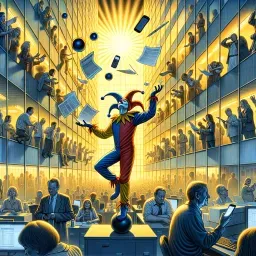
Public office is the last refuge of the incompetent.
-
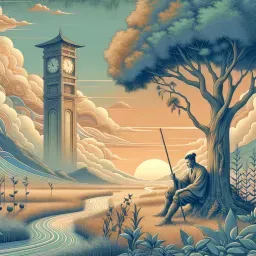
The two most powerful warriors are patience and time.
-

Don't dream it. Be it.
-

That which does not kill me makes me stronger.
-

The true measure of any society can be found in how it treats its most vulnerable members.
-

The bad news is time flies. The good news is you're the pilot.
-

I am your father.
-

Every journey begins with a single step.
-
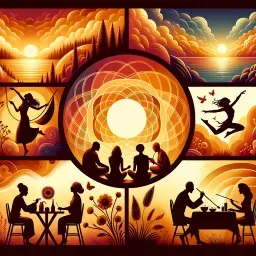
It's not the years in your life that count, it's the life in your years.
-

I've seen things you people wouldn't believe, attack ships on fire off the shoulder of Orion, I watched c-beams glitter in the dark near the Tannhäuser Gate. All those moments will be lost in time, like tears in rain. Time to die.
-
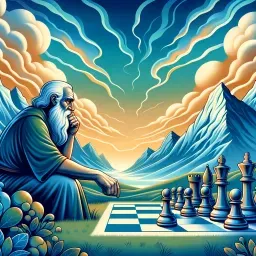
Never interrupt your enemy when he is making a mistake.
-

To live in hearts we leave behind is not to die.
No Comments